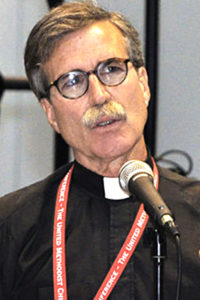The Power of Love
In the weeks since the Supreme Court issued its ruling in Dobbs v. Jackson Women’s Health Organization, American public life has been disrupted by protest and violence: Enraged abortion advocates filling city squares. Mostly young women shouting slogans like “forced birth” and “women will die.” Vandals undermining the ministry of dozens of crisis pregnancy centers. Anarchists desecrating churches and disrupting worship services. We’ve even seen our president vehemently object to the decision at microphones in Washington, DC and Europe, where he (unprecedentedly) denounced the Court’s “destabilizing” and “outrageous behavior.”
As expected, the release of Dobbs really stirred things up. In the months and years ahead, Christians must brace themselves and be ready to speak out (as well as to listen) as the abortion debate accelerates and hits closer to home. No longer will the Supreme Court make abortion law. That responsibility is now ours. Citizens and elected officials of each state will decide their own abortion laws.
There will also be a more personal outcome of Dobbs. It will involve countless couples who, before the Court overturned Roe v. Wade, would simply have visited an abortion clinic to be rid of an “unplanned pregnancy.” Now, many of them will be challenged to welcome unplanned children into their lives.
Just days before the decision was announced, the Washington Post carried a story by Caroline Kitchener headlined “This Texas teen wanted an abortion. She now has twins.” It involved 18-year-old Brooke and her boyfriend Billy, a couple of Corpus Christi, Texas, kids once committed mainly to having a good time. They met, fell in love, and became intimate. Then Brooke found out she was pregnant. Abortion seemed like the default solution. But a new law that had just taken effect in Texas made abortion access difficult, if not impossible. Looking to get an ultrasound as quickly as possible, she made an appointment at what turned out to be a crisis pregnancy center. There she learned she was carrying twins, and was encouraged to keep them.
With Billy’s support, Brooke gave birth to Kendall and Olivia, now three months old. Since then, the young family has struggled. Billy works longer hours. Brooke tried to complete real-estate training, but could not. Kendall and Olivia are always hungry. Bouncing from her mother’s to his father’s house, their lives are chaotic. Messy. Unplanned. Apparently directionless. Definitely unsatisfactory.
And yet, beneath all the confusion, their tiny daughters are teaching their mother and father how to love. Little by little, Brooke and Billy are learning to love their children. One bottle at a time. One extra shift worked at a time. One encouraging word to the other. One conversation about the next move they will make. Kendall and Olivia are also helping their mother and father to love each other. Not in a sentimental way. But in a real and Christian way: For love is simply sacrifice for the good of the beloved.
An unplanned pregnancy. The parents immature teens. Without means. Without plans. Without anything—except the gift of this little one (two in the case of Brooke and Billy). And suddenly, everything changes. The newborn requires love from the young mother and father. And more often than not, love will be given. That love will mature the parents. Frequently, this process will not be orderly or pretty. But it will transform the lives, hearts, and minds of those involved.
In running this article, the Washington Post probably was aiming to increase concern among readers, who lead orderly lives, about laws that restrict abortion. But instead, inadvertently, the Post reminded them of the power of love—especially in unplanned, and inconvenient, circumstances.










